Wakefield grandma given new hope after groundbreaking cancer treatment is running for hospice
and live on Freeview channel 276
In 2020, Lorraine Wilby was told she potentially had less than a year to live when the cancer in her eye spread to her liver as there were no standard treatments to cure her.
But she joined a clinical research trial at The Clatterbridge Cancer Centre in Liverpool, where a ground-breaking form of immunotherapy was injected directly into the tumours in her liver.
Advertisement
Hide AdAdvertisement
Hide AdThey have now shrunk by around 60 per cent, giving her the hope of a longer life to spend with her new grandson who was born just before Christmas.
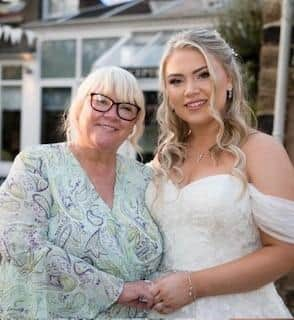

Lorraine, 59, said: “I was making preparations for my death – now I’m just focussing on living."
She is well enough now to be in training for this year’s London Marathon, with proceeds going to Wakefield Hopsice, which helped her cope with the initial terminal diagnosis.
She is also overjoyed that she has been able to see her five-year-old grandson, Adrian, start primary school, and welcome another grandson, Cain, who was born last month.
Advertisement
Hide AdAdvertisement
Hide AdLorraine was diagnosed with ocular melanoma – a type of skin cancer behind the eye – in 2018 and had treatment, including removing her left eye.
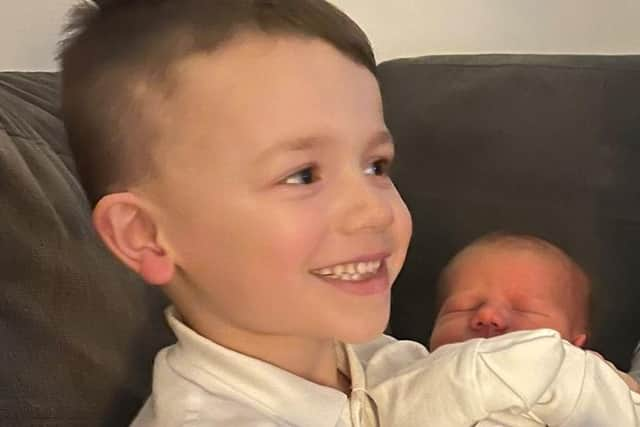

However, the cancer moved to her liver, and she was told it could not be cured.
Her consultant said that if immunotherapy treatment to halt the spread of the cancer worked, she could live two to three years, but if it failed, she had just six to nine months left.
However, Lorraine was given the chance to join a clinical trial at Clatterbridge by consultant Dr Joe Sacco.
Advertisement
Hide AdAdvertisement
Hide Ad“I bit his hand off,” said Lorraine. “You don’t turn down cancer treatment.”
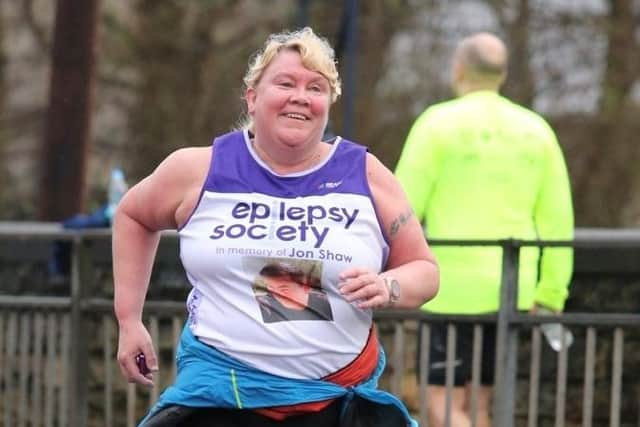

The treatment was explained to me and although the thought of a virus being injected into me sounded strange, they told me all the ins and outs about it, and I didn’t think twice.”
She has now completed the Replimune therapy and is finishing standard immunotherapy this month, with regular scans showing that her tumours are continuing to shrink.
Lorraine, who travels to Clatterbridge’s Liverpool hospital from Wakefield, said: “This trial has given me hope. If my head is happy, I can deal with anything that is thrown at me. I don’t look at me dying now, I look at me surviving – I don’t think of death at all.
Advertisement
Hide AdAdvertisement
Hide Ad"Without the trial, I honestly don’t think I would have survived Adrian’s third birthday.”
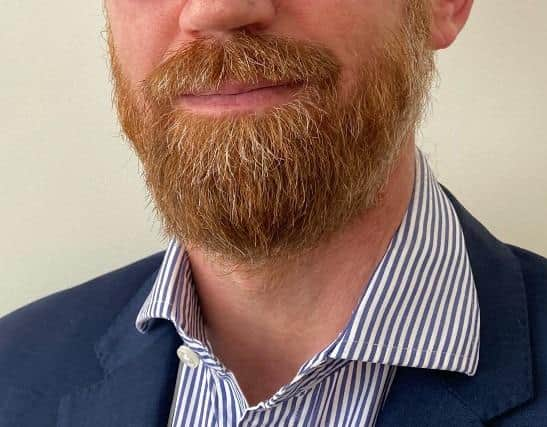

This treatment – called oncolytic virotherapy – uses an engineered herpes virus, modified to stimulate an immune response locally and to prevent spread to normal cells, which is injected directly into the cancer lesions in the liver.
The delicate process is Interventional Radiotherapy, where the needles delivering the therapy are guided into exactly the right places using live ultrasound or CT scanning, which allows clinicians to see inside the body.
The virus has been altered to make it specifically attack the cancer cells and also to train the body’s own immune system to fight the cancer, hopefully reducing it over time and targeting it wherever it may appear in the future.
Advertisement
Hide AdAdvertisement
Hide AdLorraine has been having the treatment, created by biotech company Replimune, alongside standard immunotherapy, for two years.
Dr Sacco, medical oncologist at Clatterbridge and clinical senior lecturer at the University of Liverpool, said the treatment was still at a very early stage in terms of numbers of patients and more research was needed.
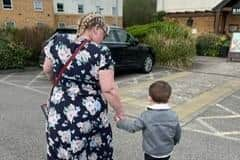

But he added: “It is looking good. I’m really hopeful with what we have seen so far. It looks very promising on an individual level and she’s not the only patient who has responded.”
Dr Sacco said the treatment had a double response – directly killing cancer cells in the liver and also targeting them wherever they were found by the body’s own immune system.
Advertisement
Hide AdAdvertisement
Hide AdThis seems to have happened with Lorraine because the tumours not injected with the therapy also saw a reduction in size, suggesting that Lorraine’s immune response had been triggered to shrink them.
Dr Sacco said: “It is like a vaccination inside of you,” he said. “We have engineered the virus to make the immune system more active.”
Although injecting into the liver can be an unpleasant procedure, said Dr Sacco, the side effects of the oncolytic virotherapy treatment itself were generally less than with chemotherapy, thoughresponses to it are individual.
He recently presented findings of the trial to the 20th International Congress of the Society of Melanoma Research, in the United States.
Advertisement
Hide AdAdvertisement
Hide AdThe findings showed a positive and long-lasting response in 30 per cent of trial patients, combined with limited side effects.
An outcome that he described as “compelling”.
Lorraine is back at work and is also training to take part in the London Marathon to raise money for Wakefield Hospice.
“It is my way of thanking them for supporting me in lockdown,” she said. “People with cancer struggled a lot.”
And Lorraine urged anyone offered the chance to go on a clinical research trial to take it up, saying: “These trials can work. It is not always an easy journey, but it has worked for me. All the way through, Dr Sacco and the trials team have been so supportive and took my worries away.
"They really make you feel cared for.”
You can sponsor Lorraine’s marathon run here: Wakefield Hospice: My ocular melanoma journey